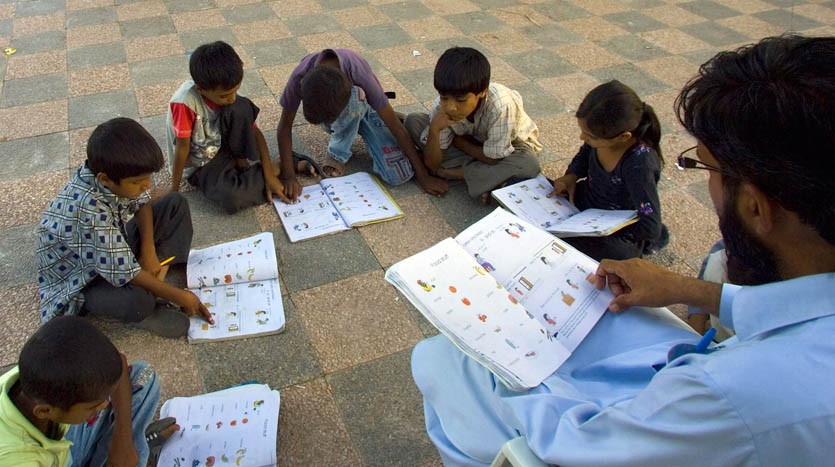
Thinking of 100 per cent literacy on the International Literacy Day

I am writing this on September 8 which is observed as the International Literacy Day. Wonder what is being done to educate people who never went to school. Most of them are acutely aware of their shortcomings and want to know about all that can improve their lives.
Say, a labourer wants to acquire basic literacy and I don’t have time for him, can I or somebody like me guide him to a place from where he can get some education? The answer is ‘No’. I have never come across an ad in a newspaper, radio or television guiding people to contact or approach a department or a place where they can get basic education -- that is, if they want.
So, what is all this fuss about literacy and non-formal basic education (L&NFBE)? The government has a department for this. The department’s website has a message of the chief minister, then a message from the minister of L&NFBE, and a message from the parliamentary secretary Literacy. The messages close with these lines:
"Literacy and Non Formal Basic Education Department (L&NFBED), Government of the Punjab, is charged with the statutory responsibility of enhancing literacy rate, promotion of adult literacy and life learning skills. The Department has chalked out the strategy for implementation of the programmes and honed the details at policy, strategic, operational and tactical level."
I want to know about a programme where I can send a person desirous of getting education because he could not go to school as a child -- a place where he gets to learn to read, compute and write. A two-hour long school time that tells people at the outset what they will achieve at the end of the programme would attract people in hordes.
I call L&NFBED and am directed to another officer who doesn’t respond to a message or phone. I want to know about the ‘life learning skills’ mentioned on the website. What skills are these? Who are getting these skills? How do I find out about them?
There is a literacy map of Punjab on the website, according to which the Rawalpindi district has the highest literacy rate in the province -- 82 per cent -- while Rajanpur has the lowest -- 39 per cent. The parliamentary secretary Literacy is from Rajanpur. Let’s hope the situation will improve there.
On the website there is a list of projects without any clue of what they are. It’s sad that I did not find anything useful on the website of a department that professes to be working for increase in literacy as UNESCO marks digital literacy as the theme for Literacy Day 2017.
According to Unesco, "Literacy is now understood as a means of identification, understanding, interpretation, creation, and communication in an increasingly digital, text-mediated, information-rich, and fast-changing world."
Digital technologies, according to Unesco, have altered how people learn, live, work, and interact. Pakistan ranks 5th in Asia among mobile phone users.
Literacy is the ability to read and write. To achieve hundred per cent literacy all the educated people need to do their bit. The government alone cannot achieve that. The idea that every student teaches one person to read, write and compute during summer holidays came up few years back. These newly taught persons then should be made to take a test and be given a certificate. The students (teachers) can be given a target.
Likewise, educated housewives can be very useful here. They, too, should be asked to take time out to teach their domestic help at their disposal. In offices, the educated need to teach basic reading and writing skills to the canteen boys. The whole nation needs to be engaged in educating the have-nots, the less fortunate among us. This will benefit not just the recipients of the basic skills but everyone -- the nation at large.